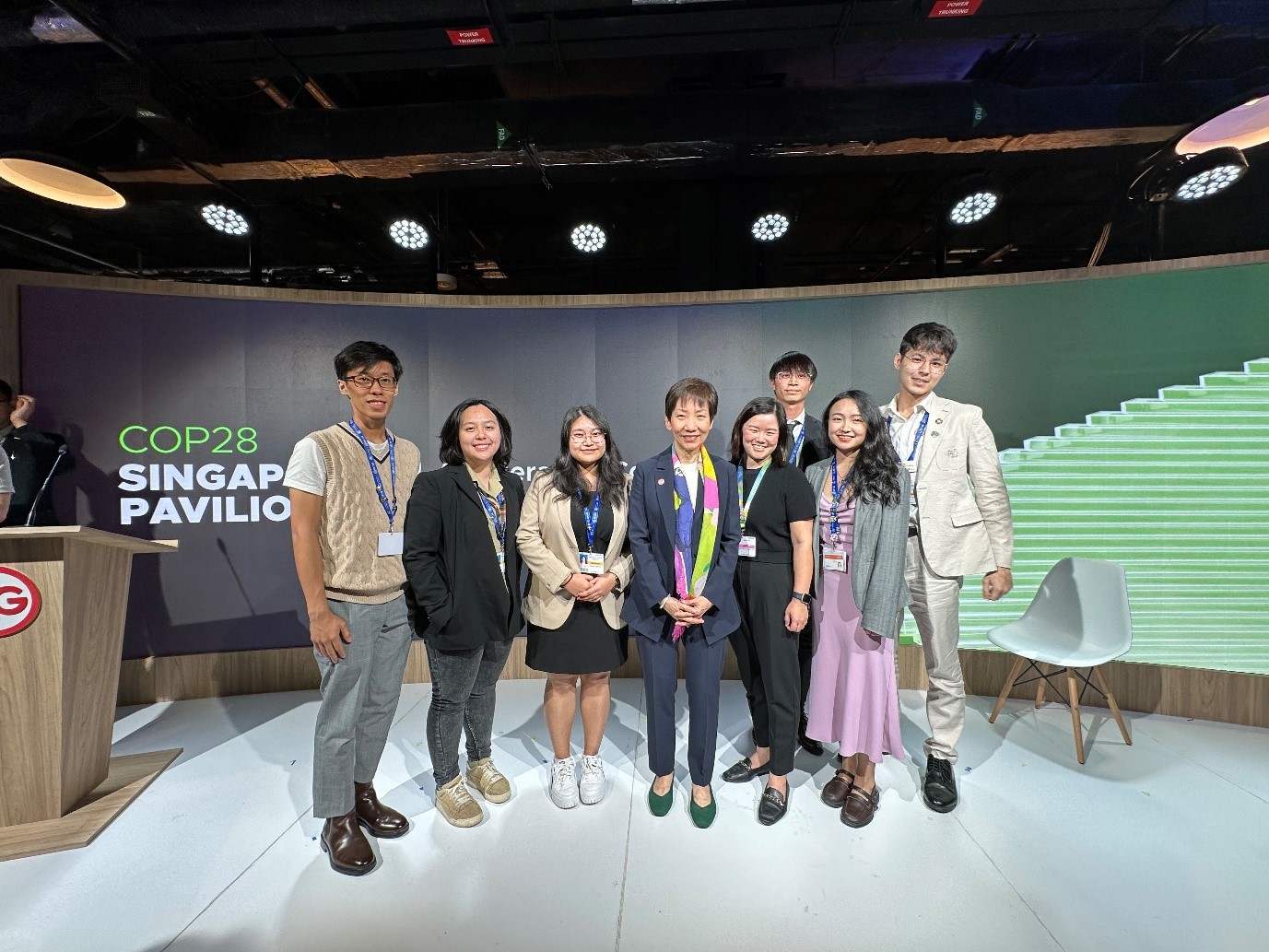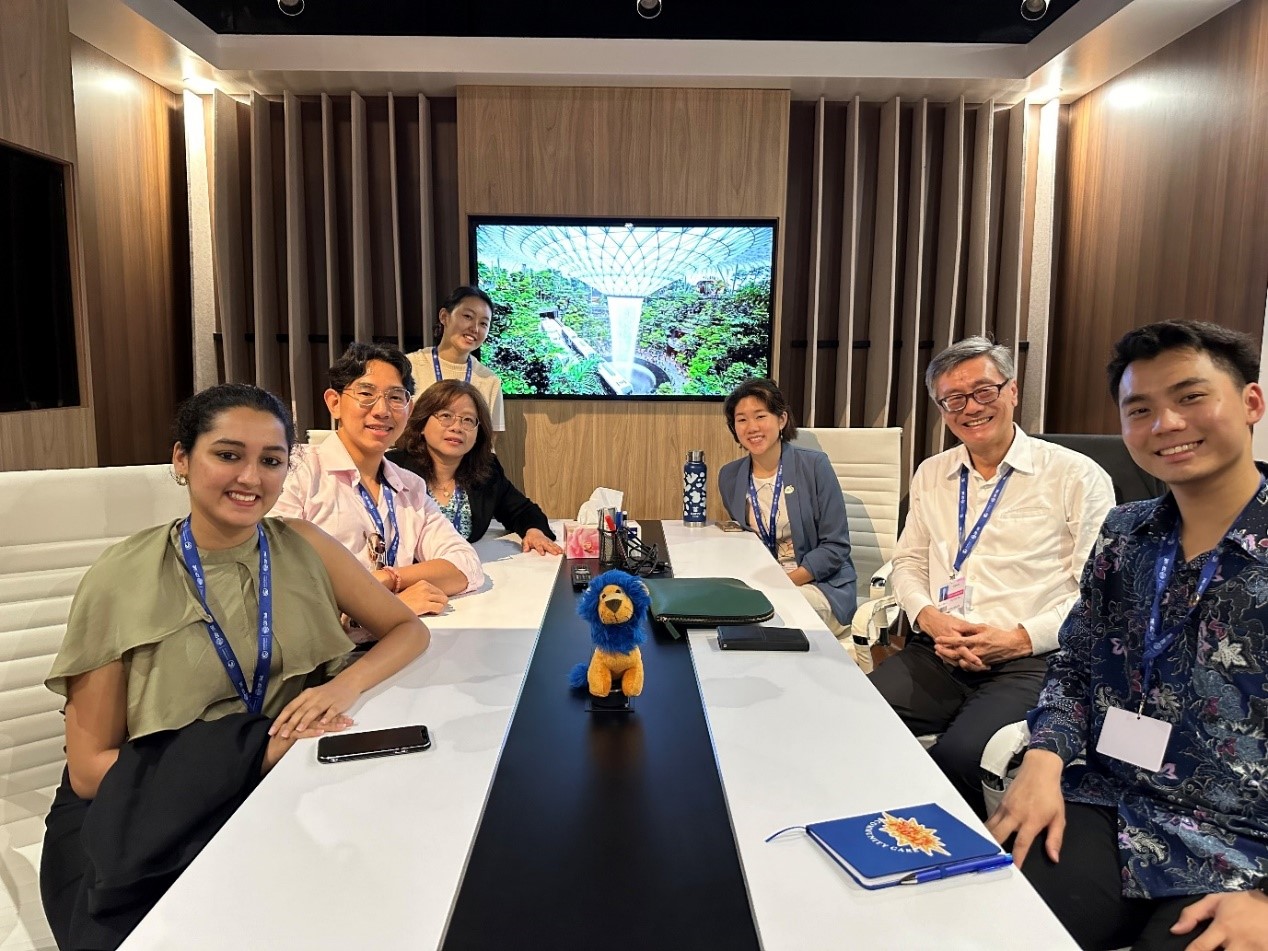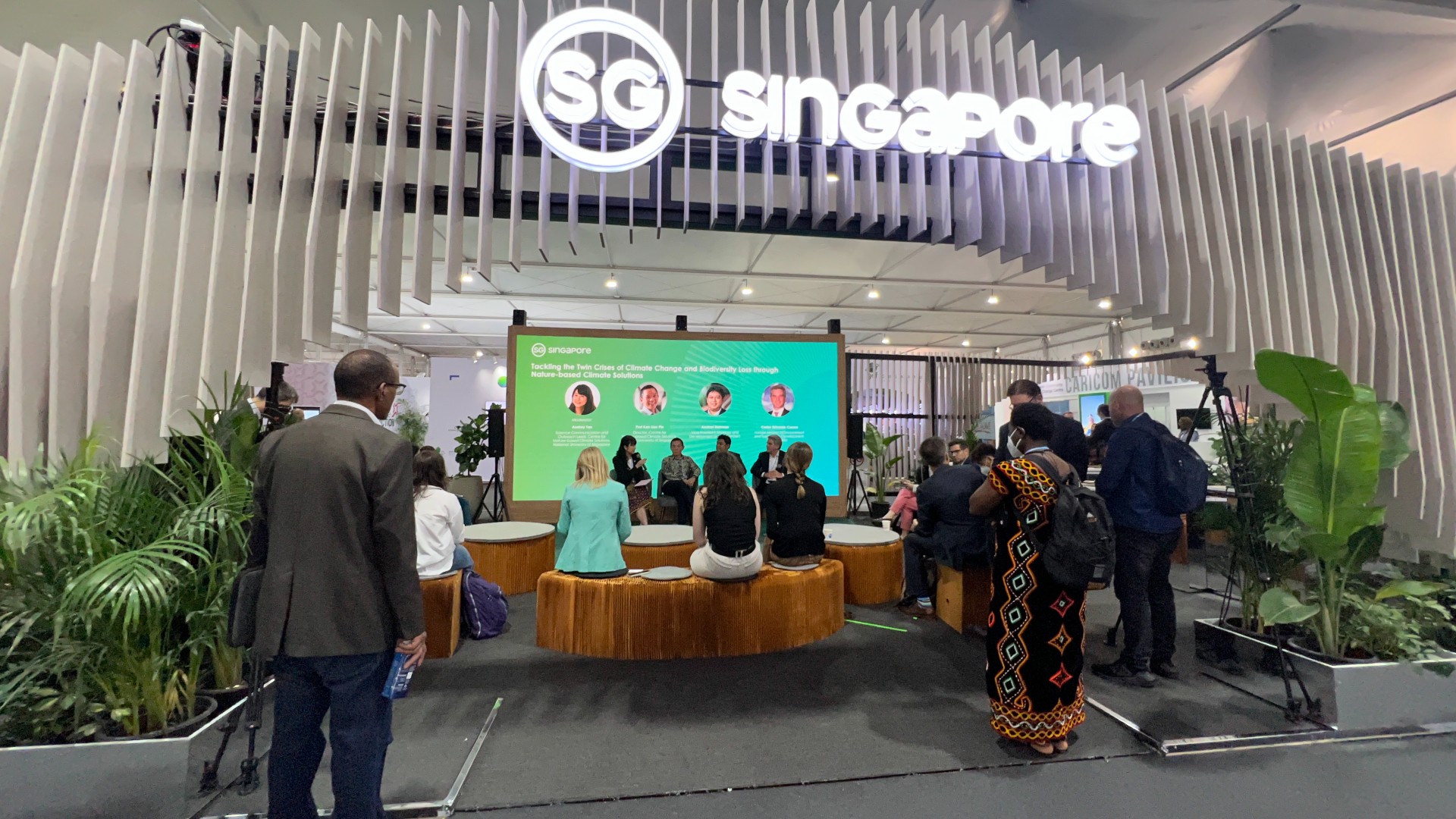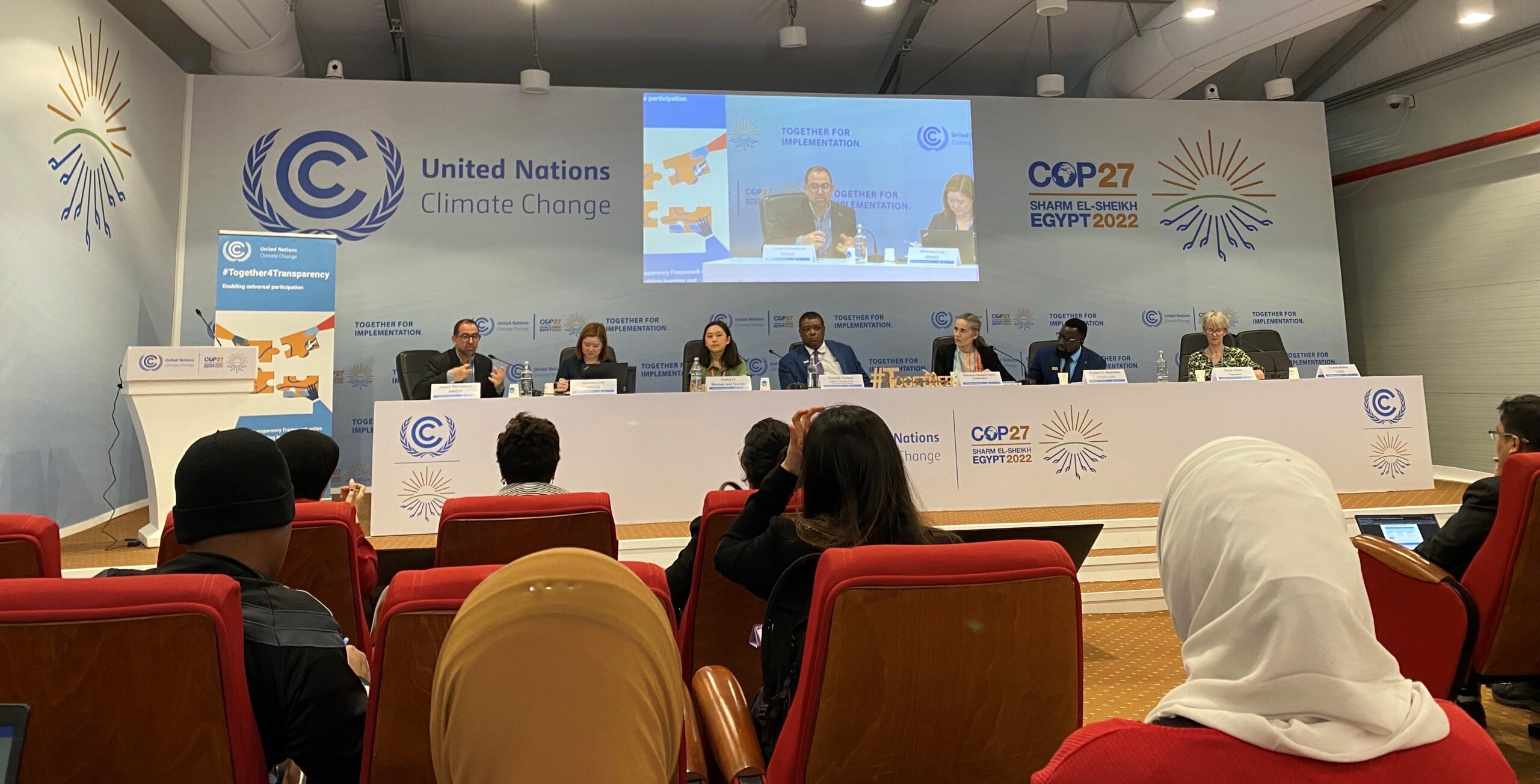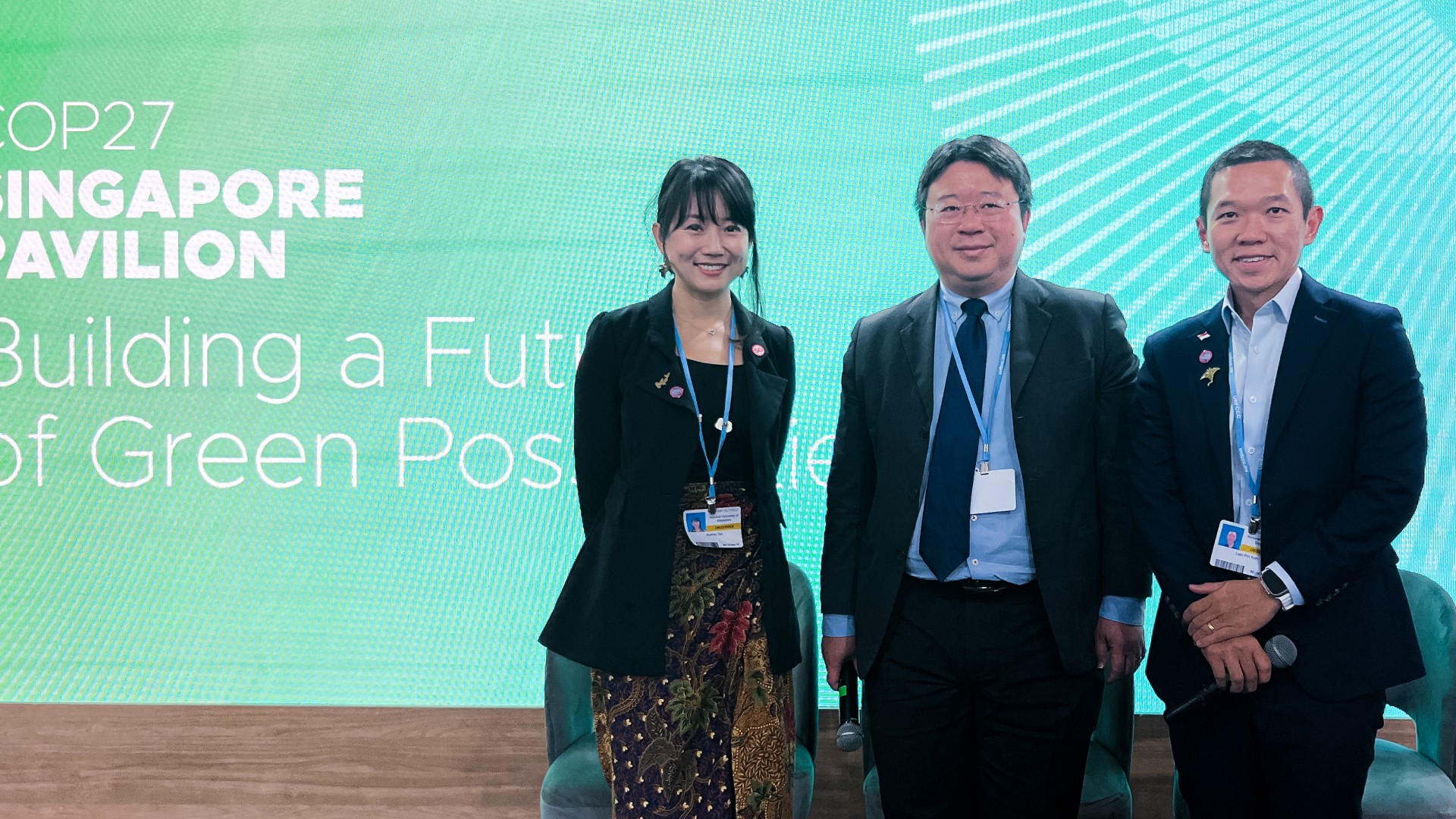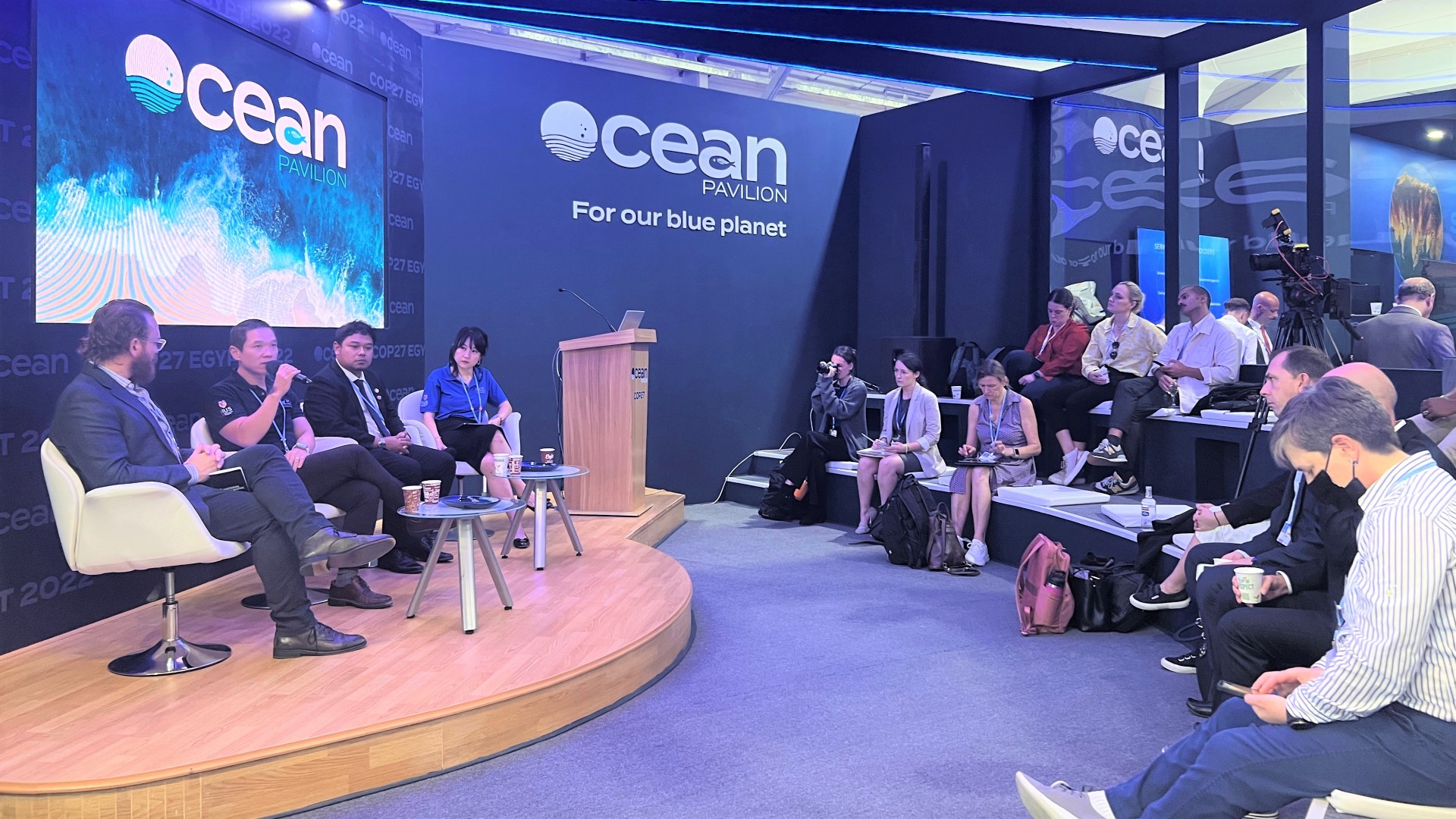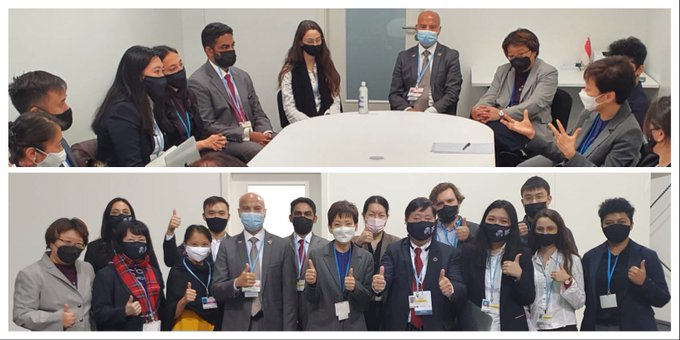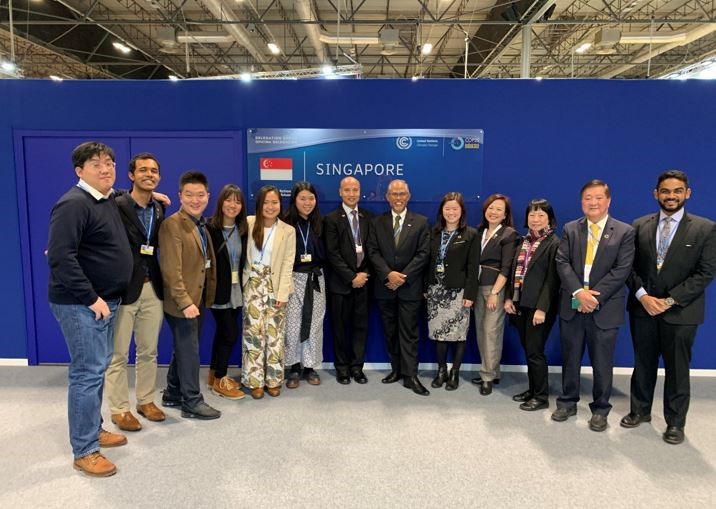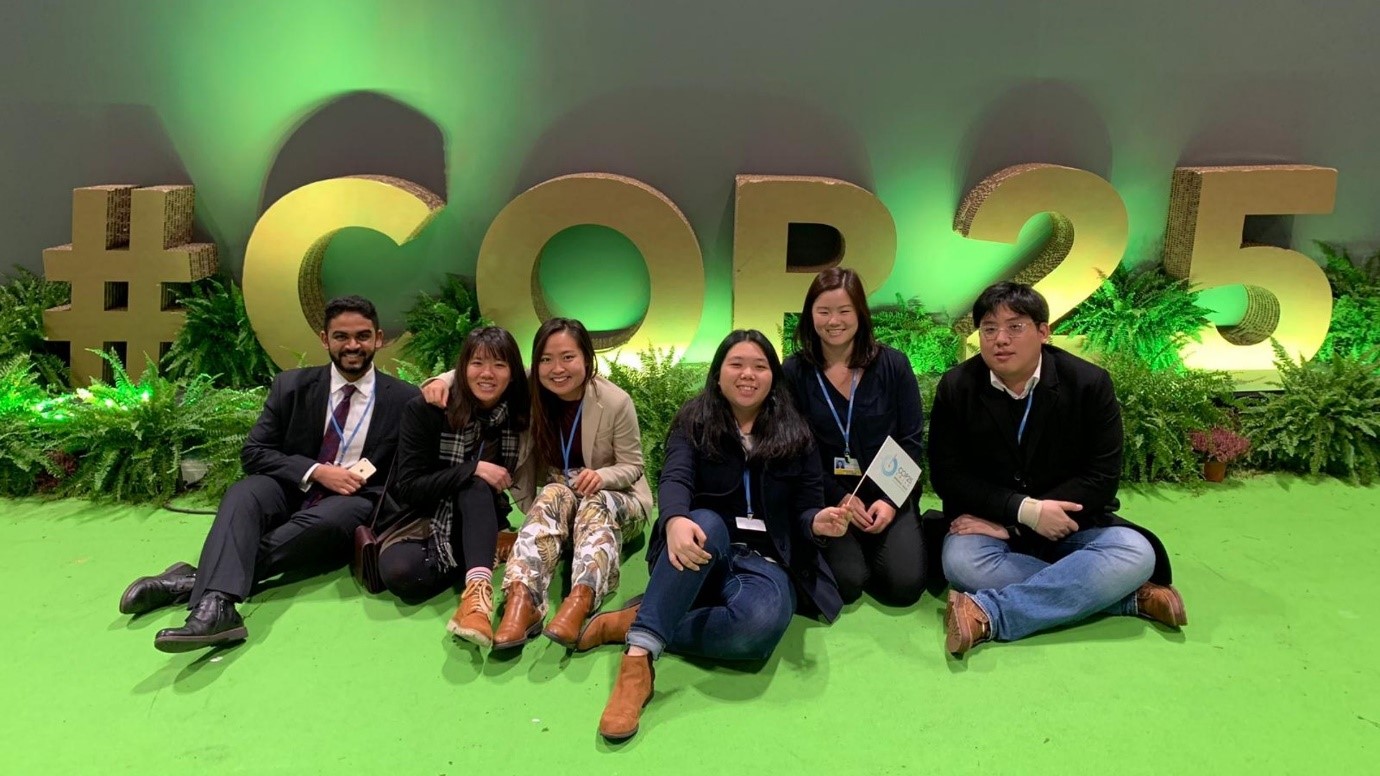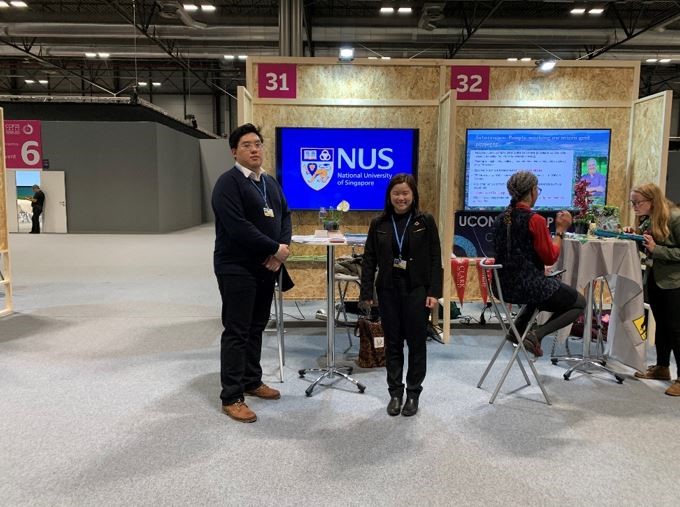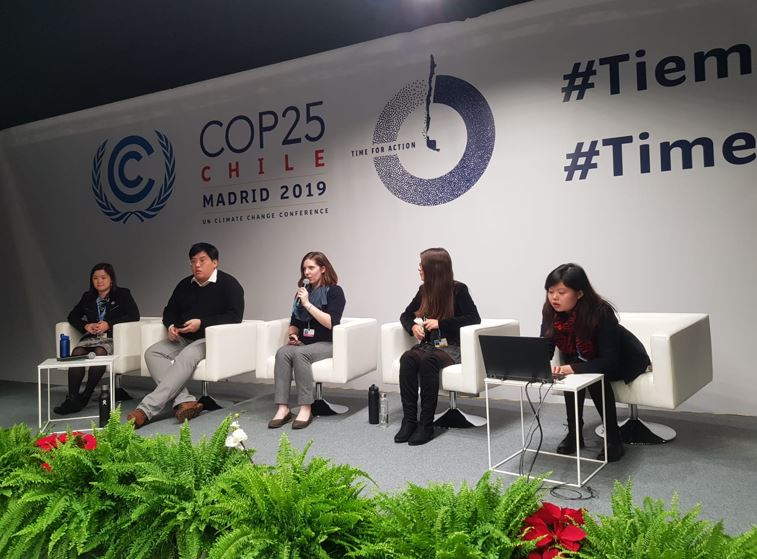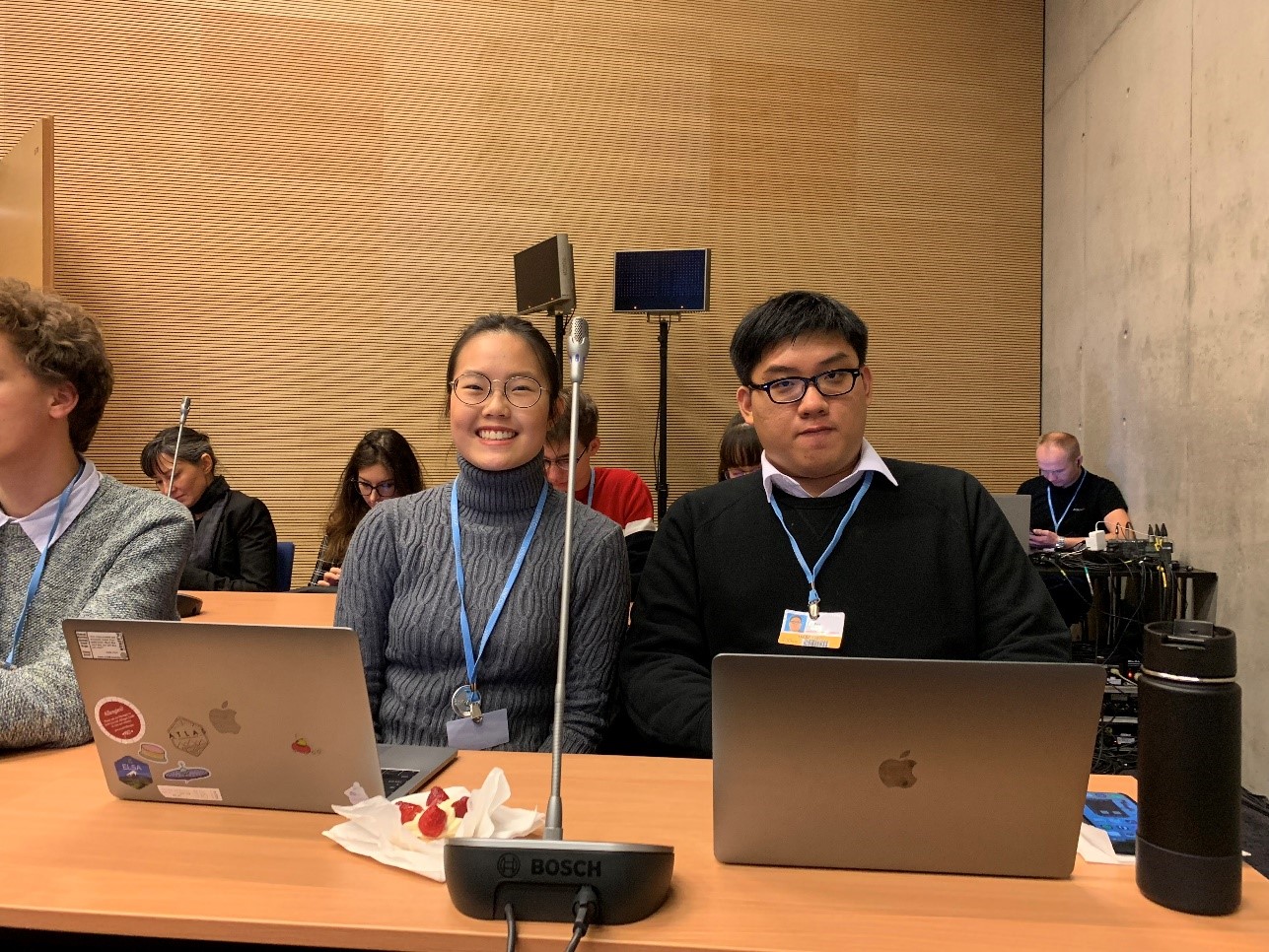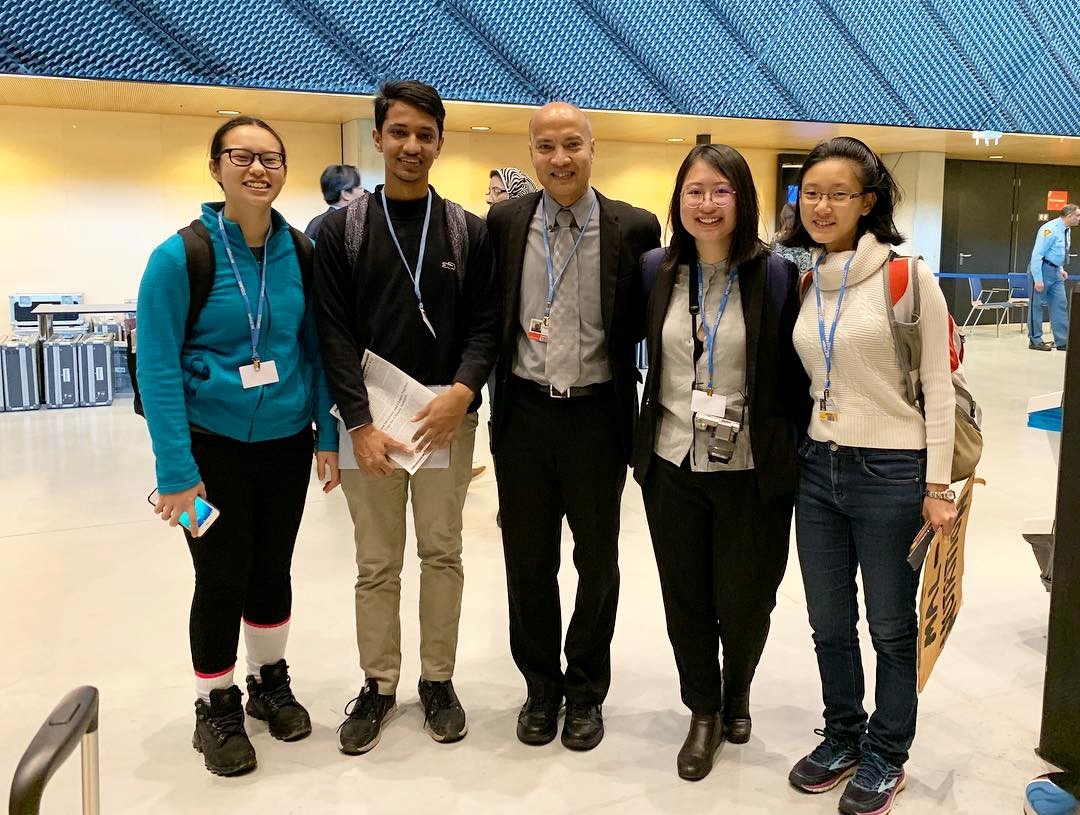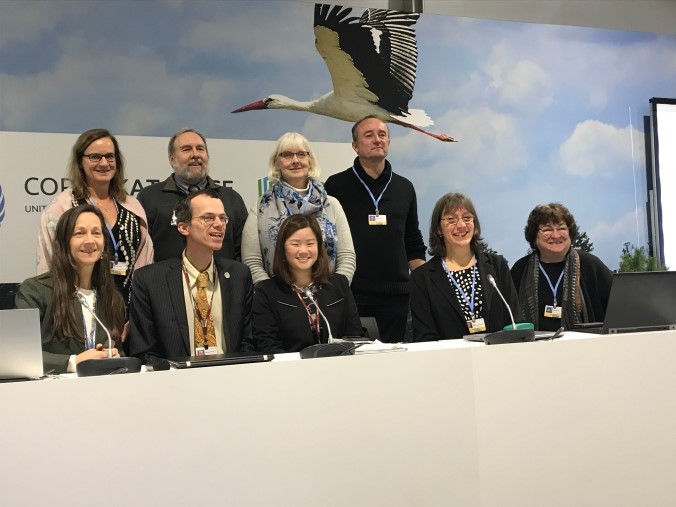NUS has been accredited by the UNFCCC as an observer organisation since 2014, and members of the NUS community have attended the annual COP summit since COP20 as official observers.
The 29th United Nations Climate Change Conference of the Parties (COP29) is taking place in Baku, Azerbaijan from 11 to 22 November 2024. NUS will be showcasing our sustainability research at the Singapore Pavilion. NUS staff will be also speaking at the pavilion and NUS students have also been selected to present Singapore as youth ambassadors.
What is COP?
COP stands for Conference of the Parties to the United Nations Framework Convention on Climate Change (UNFCCC). The COP is the supreme decision-making body of the UNFCCC. It meets every year unless the Parties decide otherwise.
The COP meets in Bonn, the seat of the secretariat, unless a Party offers to host the session. The COP Presidency rotates among the five recognised UN regions - Africa, Asia, Latin America and the Caribbean, Central and Eastern Europe and Western Europe and Others – and the COP meeting is held in the corresponding country that holds the Presidency for the given year.
The first COP meeting, known as COP1, was held in Berlin, Germany in March 1995.
What is the UNFCCC?
The UN Framework Convention on Climate Change is an international law treaty designed to address global climate change. It is often referred to as “The Convention” or simply, “UNFCCC”.
In June 1992, the world’s nations met for the “Earth Summit” in Rio De Janeiro, Brazil. The “Earth Summit” had many significant achievements: the Rio Declaration and its 27 universal principles, the United Nations Framework Convention on Climate Change (UNFCCC), the Convention on Biological Diversity, and the Declaration on the principles of forest management . The “Earth Summit” also led to the creation of the Commission on Sustainable Development, the holding of first world conference on the sustainable development of small island developing States in 1994, and negotiations for the establishment of the agreement on straddling stocks and highly migratory fish stocks.
Today, the UNFCCC has near-universal membership, with 198 countries having ratified the Convention. Countries that have signed on and ratified are called “Parties to the Convention”, or “Parties” for short. The ultimate objective of the Convention is to prevent dangerous human interference with the earth’s climate system.
How NUS has been involved at COP in the past
NUS is one of 23 universities in Asia, and the only one in Singapore, which is accredited by UNFCCC to attend the annual COP summit. It is also represented on the steering committee of the Research and Independent Non-Governmental Organisations constituency of the UNFCCC, which conducts research and develops strategies to combat climate change.
Here are some highlights from NUS’ participation at recent COP summits.
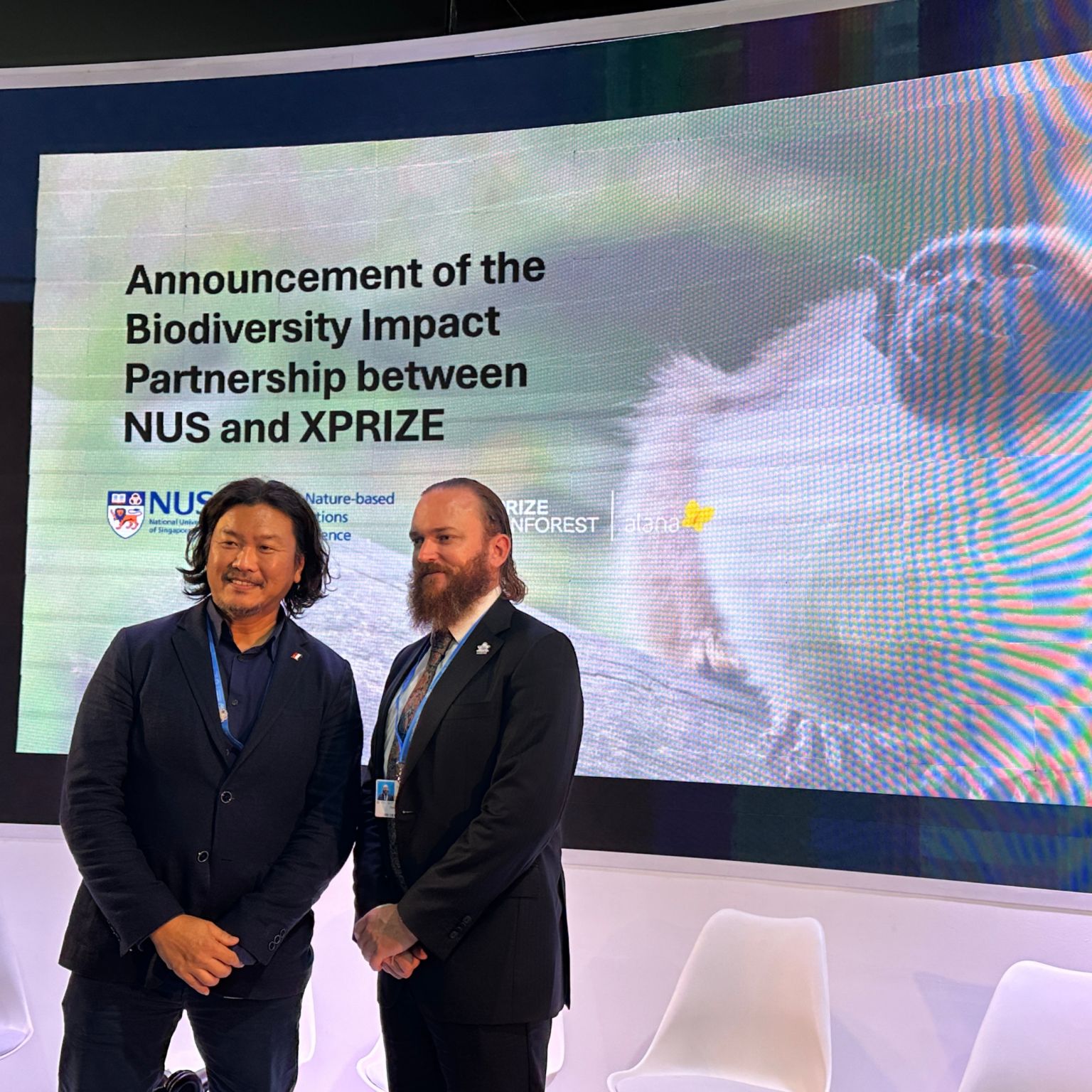
NUS once again led a delegation to the annual COP summit, held at Baku, Azerbaijan from 11 to 22 November 2024, to showcase its research to the world through multiple presentations and panels.
Led by Associate Professor Adrian Loo from the NUS Centre for Nature-based Climate Solutions (CNCS), nine faculty members from the NUS Delegation spoke on the Singapore pavilion. They included Prof Benjamin Cashore (Institute of Environment & Sustainability), Prof Adrian Law (Coastal Protection and Flood Resilience Institute), Ms Danielle Yeow (Centre for International Law) and Assoc Prof Nirmal Kishnani (College of Design and Engineering). The Bezos Centre for Sustainable Protein at NUS was discussed at the Supercharging Future Foods panel which featured Prof Huang Dejian (Faculty of Science) as a speaker.
The NUS Centre for Nature-based Climate Solutions also announced the Biodiversity Impact Partnership with American innovation platform XPRIZE Foundation to advance conservation technology in Southeast Asia.
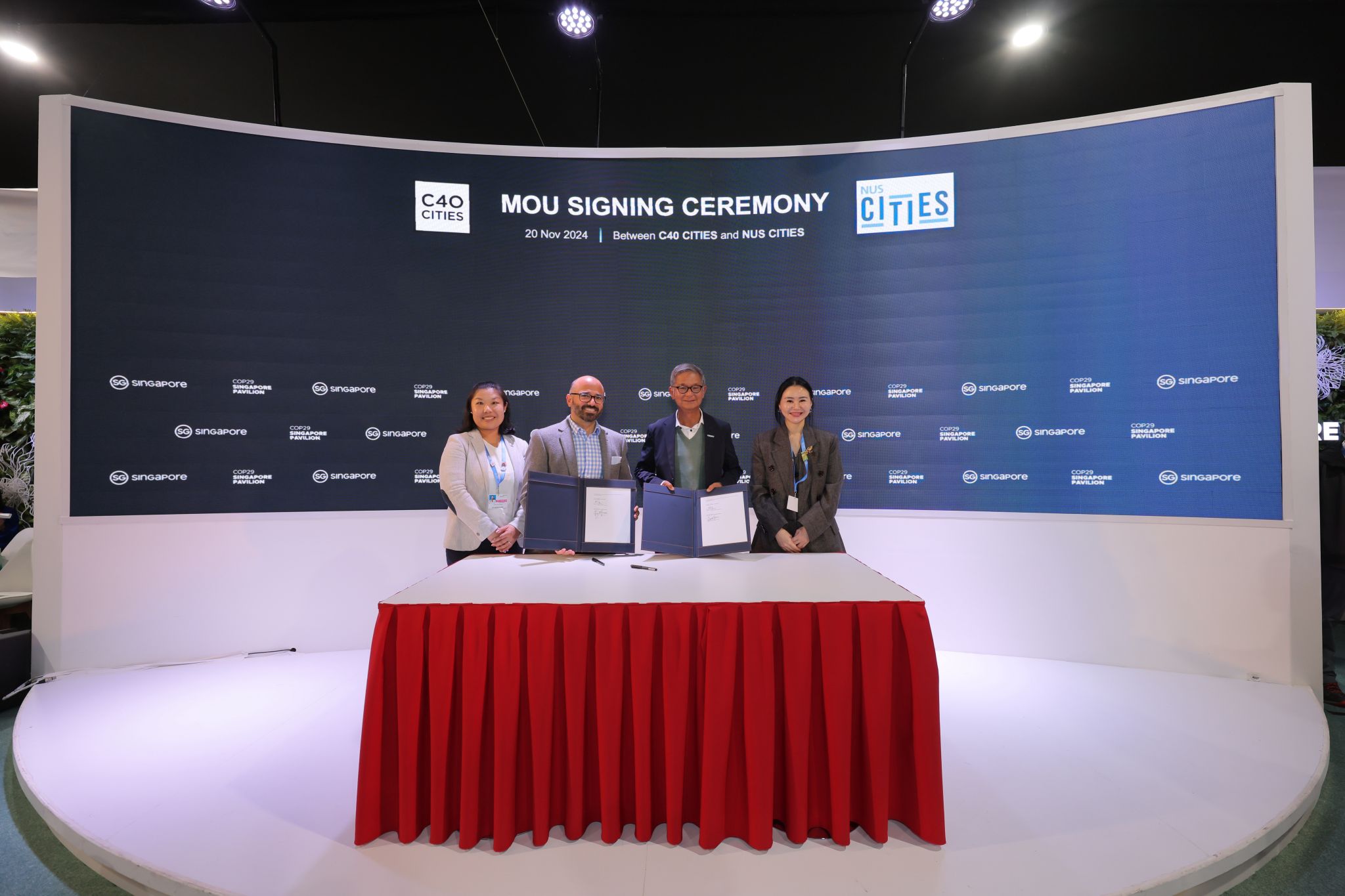
On Urbanisation Day, NUS Cities signed a Memorandum of Understanding (MoU) with global climate leadership group C40, establishing a partnership to equip city leaders with tools to tackle the climate emergency. The MoU committed to build urban climate resilience, advance urban planning research, co-organise conferences and seminars and develop executive education programs for city officials and industry leaders.
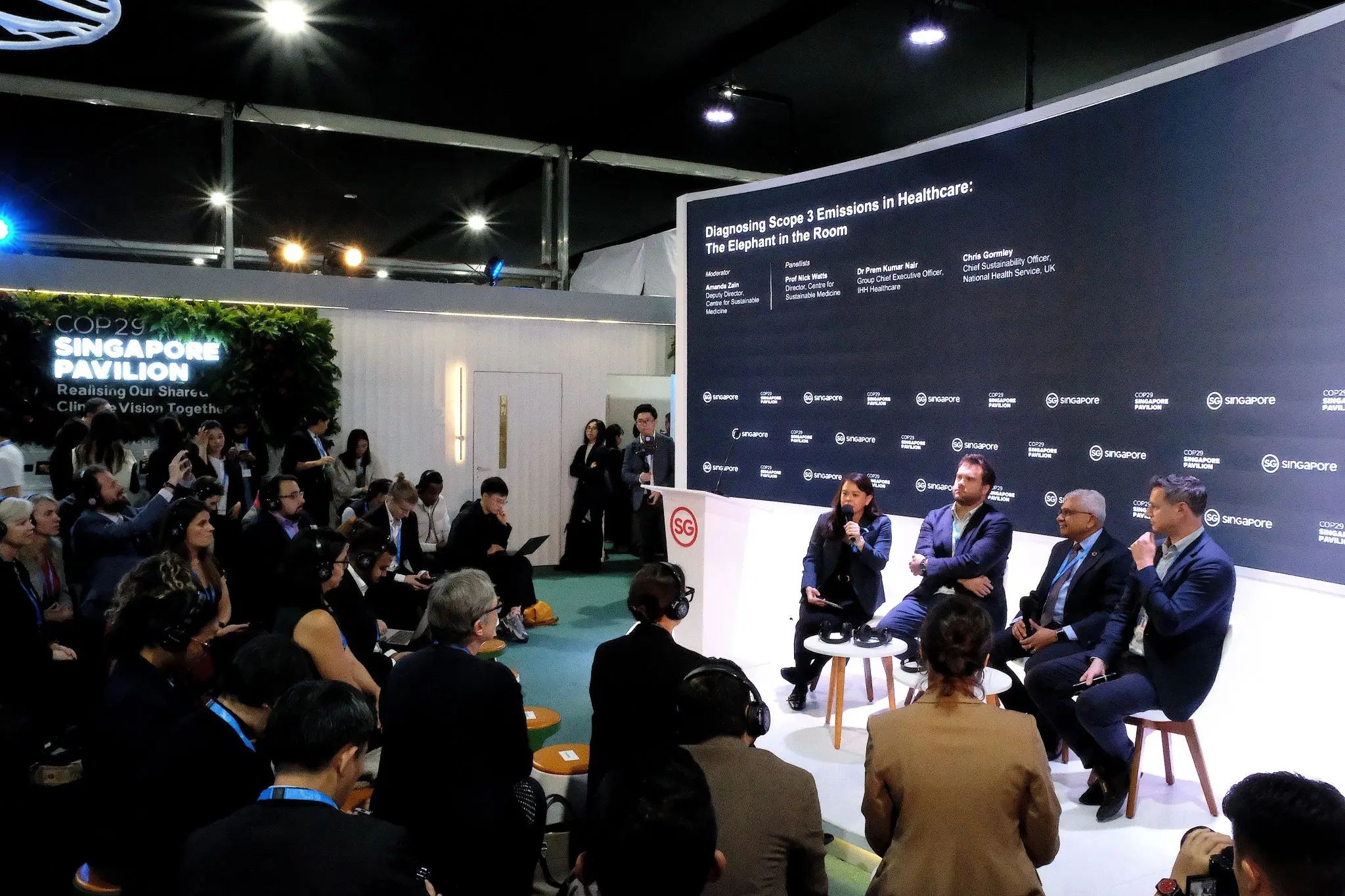
The Centre for Sustainable Medicine (CoSM) garnered global coverage when it launched the world’s first postgraduate programmes in sustainable healthcare - the MSc in Sustainable Healthcare and an Executive Fellowship - at the Singapore pavilion. Led by CoSM Director, Professor Nick Watts, the Centre also facilitated discussions on healthcare decarbonisation and climate strategies across the UK, Canada, and Malaysia pavilions.
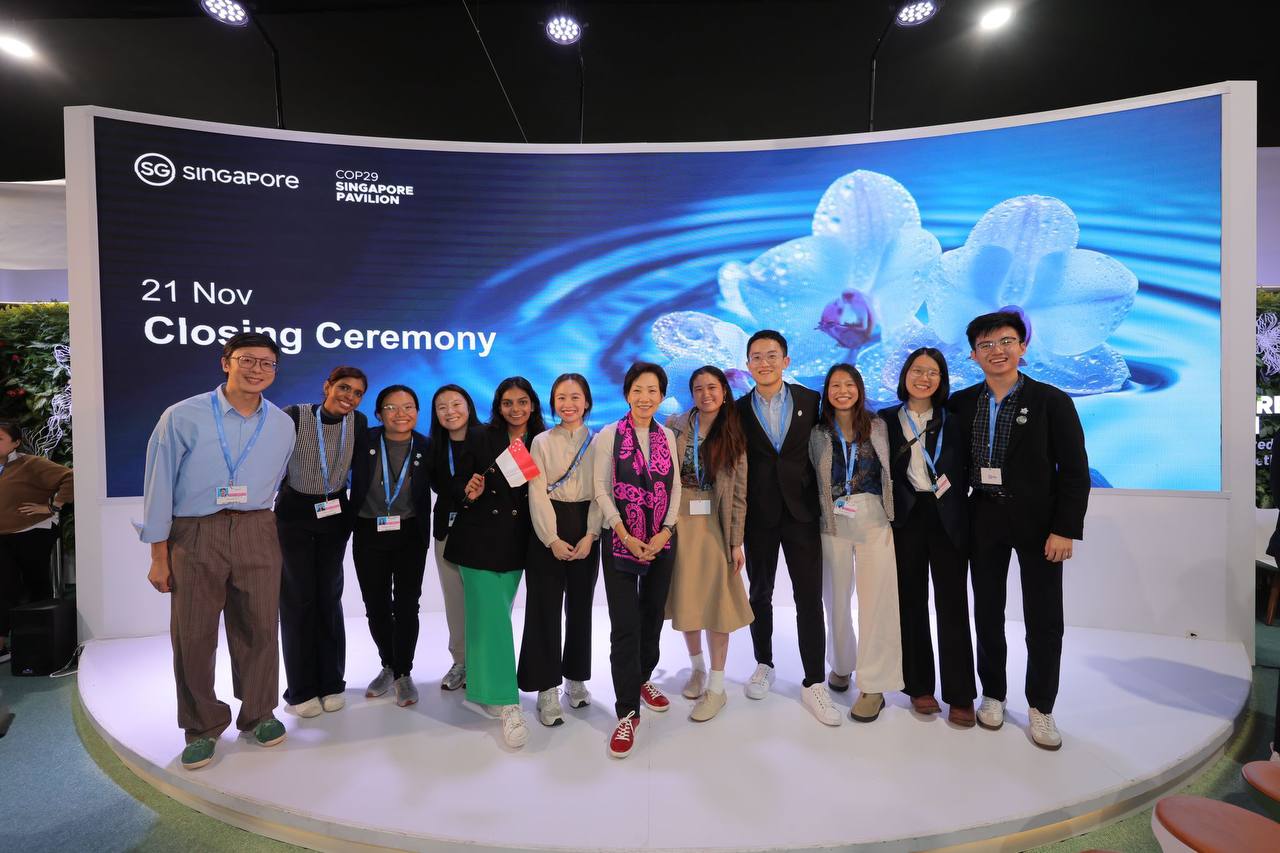
NUS students and alumni were part of the Singapore youth delegation who went to COP29 under Climate Youth Development Programme (CYDP). CYDP is co-led by the Ministry of Sustainability and the Environment, the National Climate Change Secretariat, and the National Youth Council. Under CYDP, student delegates also spoke at panel discussions at the post-COP29 public roundup session organised by CNCS.
Enquiries about participation at COP summits as a representative of NUS should be directed to the University’s Designated Contact Point, Ms Melissa Low at melissa.low@nus.edu.sg.

